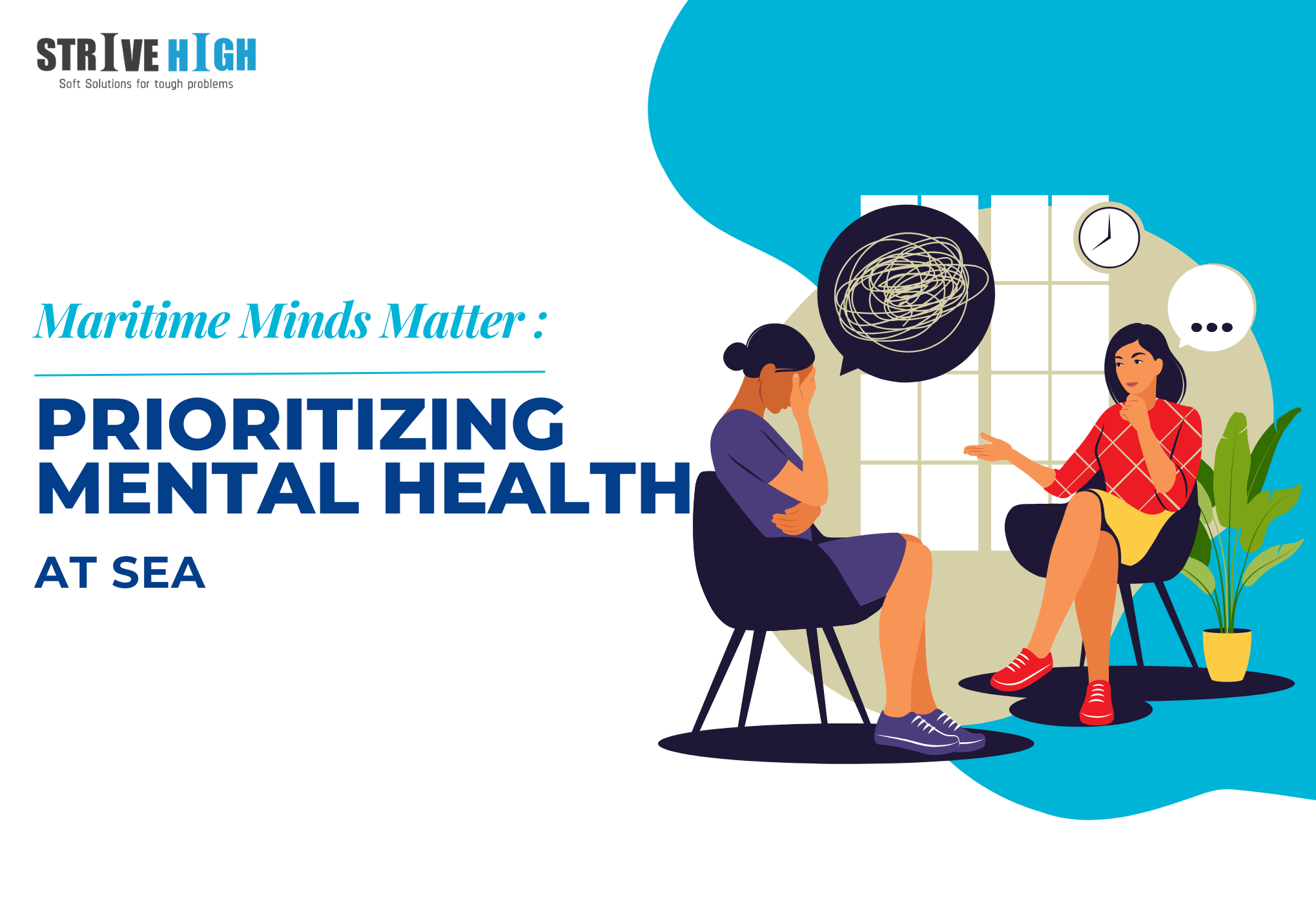Welcome to the Training Program on Mental Health and Psychological Risk Management.
“Protect your mental health, it’s a valuable asset.”
In today’s dynamic and increasingly intricate work environments, mental wellbeing and psychosocial factors are pivotal in shaping overall health, productivity, and resilience. Managing mental and psychosocial risks is essential in ensuring occupational health and safety, acknowledging that individual wellbeing is closely intertwined with organizational success.
The maritime industry is a fundamental facilitator of global trade and commerce, with seafarers playing a vital role in sustaining the economy. However, the distinctive nature of their work environment poses significant mental health risks and challenges.

Extended periods at sea, isolation from family and friends, and exposure to hazardous conditions can adversely impact seafarers’ mental wellbeing, heightening susceptibility to anxiety, depression, and other mental health ailments.
“Risk management is not just about safety protocols, but also about supporting seafarers’ mental health.”
Moreover, the maritime industry’s culture and work environment can, at times, perpetuate detrimental stereotypes and stigmatize mental health issues, potentially dissuading seafarers from seeking assistance. Unaddressed mental health issues can result in severe ramifications, including reduced productivity, heightened risk of accidents, and suicide.

To address these challenges, it is imperative to prioritize mental risk and psychosocial risk management as part of a comprehensive approach to seafarer wellbeing. By proactively identifying and mitigating mental health risks and psychosocial hazards, ship operators and managers can nurture a culture of support and inclusivity, fortify seafarer wellbeing and resilience, enhance safety and productivity, diminish absenteeism and turnover, and uphold compliance with international regulations and guidelines.
“A mentally healthy seafarer is a safer and more productive crew member.”
In this course, we will delve into seafarers’ distinct mental health challenges and provide guidance on tailored mental risk and psychosocial risk management strategies pertinent to the maritime industry.

By placing seafarers’ mental wellbeing at the forefront, we can cultivate a safer, healthier, and more supportive work environment for those pivotal to sustaining our global economy.
This introduction delineates the specific challenges faced by seafarers and underscores the significance of addressing mental health risks and psychosocial hazards in the maritime industry.
⇒ Points to Remember:
- Mental health is just as important as physical health
- Seafarers face unique challenges (isolation, confinement, trauma)
- Stigma surrounding mental health issues must be reduced
- Mental health risks must be identified and mitigated
The introductory segment has concluded, and we will now proceed with the subsequent topics pertinent to the course. We wish to extend my gratitude for your active engagement in the learning process. Thank you.
Disclaimer
“Any information we receive from you is strictly confidential and will not be disclosed to anyone, whether they are inside or outside the organization. Our main goal is to ensure the well-being and safety of the employees by focusing on observing their mental health in the workplace.”
_________________X_____________
You must log in and have started this course to submit a review.



